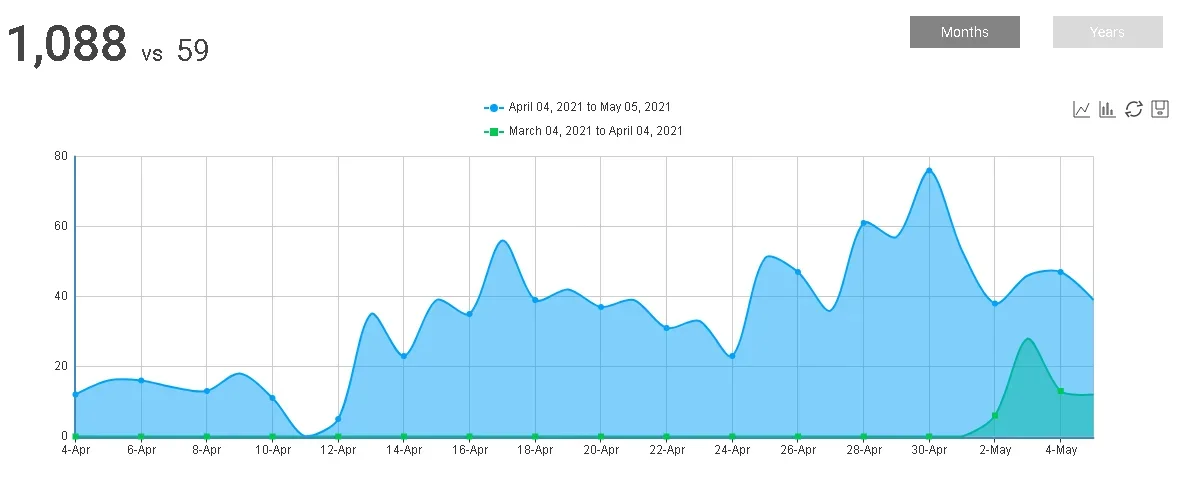Update, Day 37:
Total articles posted: 84 (+1)
I only wrote one article today. I found a keyword that I unintentionally ranked for with a different article. Surprisingly, it was getting a lot of clicks and had a high ranking even though I wasn't targeting it directly (it was at #11 without any focus). I decided to write an article specifically for that keyword.
Honestly, I'm ditching those other keywords I've been avoiding writing about. Sure, they might make some money, but I hate writing about stuff I couldn't care less about. So, I'm skipping them altogether.
Before diving into the second content push (around 45 informational articles, ranging from 100 to 1000 searches per month each), I decided to check the rankings of the case study. It's been two weeks since we last checked, so I wanted to see how it's going now.
Here are today's rankings for the case study:

Around 90% of the keywords got better, and at least 70% of them are now in the top 20 search results.
My takeaways: You can rank even if you have some similar content. You can rank with short content (some posts were as short as 200-250 words). You can rank with content that's completely rewritten. However, you can't rank well if you cram lots of different products into one article by just mentioning them a bunch of times. That didn't work out.
This makes me even more confident that my strategy is on the right track.
Write a short article of 200-400 words for your keyword, publish it, and move on to the next keyword. Once you've finished all the keywords, circle back and focus on improving the posts that have gained a decent ranking. This not only identifies low-competition keywords but also saves time by avoiding the need to write lengthy articles for difficult-to-rank keywords, which might not rank well anyway. Plus, it helps all your posts get out of the "sandbox" much faster.
I decided to update all the articles that have achieved good rankings so far, adding more content and enhancing the on-page SEO optimization by adjusting keyword percentages. I'm also revising all articles not ranking in the top 100 because many of them seem to be overly optimized, which might be why they're not ranking well (unintentional over-optimization, oops!).
Today, I updated four articles. Surprisingly, it takes much longer to improve each one than it does for me to write a new 400-500 word article from scratch.






